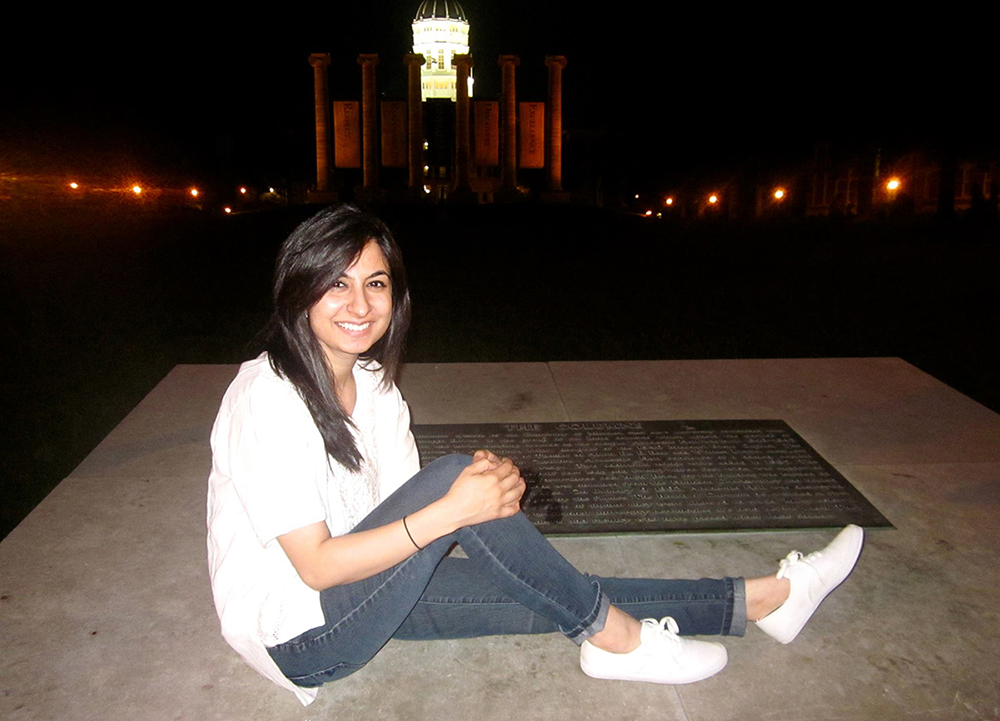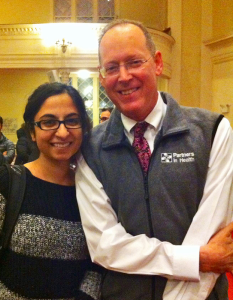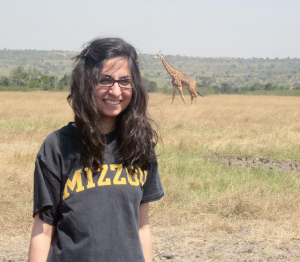
“… the idea that some lives matter less is the root of all that’s wrong with the world.”
Those words appear in Tracy Kidder’s book, Mountains Beyond Mountains: The Quest of Dr. Paul Farmer, A Man Who Would Cure the World. A medical anthropologist and physician, Farmer was a professor at Harvard University and served as the chair of the Department of Global Health and Social Medicine at Harvard Medical School. Farmer, who wrote extensively on health and human rights, was the co-founder and chief strategist of Partners In Health, an international non-profit that provides health care services and conducts research on behalf of those who live in poverty.

Kanwal Haq first ran across those words in her “Readings in Biological Science” Honors College course during her sophomore year at the University of Missouri. The words would change the trajectory of her life.
“That class honestly changed everything,” Haq said. “I knew I was interested in medicine, but I wasn’t sure what I wanted to do. I shadowed a few professionals but hadn’t found a great fit.
“We read a variety of books in the class, and my professor encouraged me to read Mountains Beyond Mountains, as he thought I would find it valuable. I connected to the text in such a deep and meaningful way. I realized I wanted to follow a similar path to Dr. Farmer and do what I could to help uplift others, especially those in need.”
A decade later, Haq has found a career where she is dedicated to advancing healthcare globally, especially for women. Haq leads the New York City Partnership’s health, education and research programs at the Arnhold Institute for Global Healthat Mount Sinai’s Icahn School of Medicine. She’s even published a book of her own, Taking Care of You: The Empowered Woman’s Guide to Better Health, written with Dr. Mary I. O’Connor, an orthopedic surgeon and professor emeritus at the Mayo Clinic.
“It’s really incredible to think that one book in one Honors class at Mizzou led me here,” Haq said. “I had so many incredible experiences at Mizzou, and I wouldn’t be where I am today without those experiences and without the people who guided me along the way. I never imagined this career path for myself or that I would be able to make an impact in this way. I 100 percent have Mizzou to thank for that.”
Haq’s “Readings in Biological Science” professor was Thomas Phillips, a Curators’ Distinguished Teaching Professor of Biological Sciences. An award-winning faculty member, Phillips was a major help as Haq navigated college life and what she wanted for the future. Haq, who grew up in Poplar Bluff, Missouri, was the first female in her family to attend college and said advice from her professors played a vital role in her growth and development – not only as a scholar but also as a person.
“Dr. Phillips was someone who took the time to listen to what I had to say and taught me to ask critical questions,” Haq said. “I’m still in contact with him today; he is still a mentor to me nearly 15 years later.”

Haq had an eye on eventually becoming a medical anthropologist after taking Phillips’ course, but she decided to stick with her originally degree choice, biological sciences. She earned that degree in 2013, with a minor in psychology as well as a minor in leadership and public service. Haq was at Mizzou for five years, which gave her the opportunity to take a variety of courses she found interesting, including several in human development and family science. The extended time also allowed her to take part in a study abroad experience in Rwanda.
“I found so many interesting classes that I wanted to take, so I thought it would be worth it to stay around for another year,” Haq said. “Plus, I discovered there was a study abroad program in Rwanda, and I wanted to see community-based research in action, which was similar to the work that Dr. Farmer was doing.”
Along with her Honors Certificate, Haq also earned the Multicultural Certificate while at Mizzou.
“Some of my first classes were huge, so it was nice to have smaller courses through Honors,” Haq said. “I needed those smaller interactions where I got to really know my professors and peers. There were just so many unique offerings in Honors, too, and those classes allowed me to develop my critical thinking skills and grow in different ways. I really loved my Honors experience.”
After returning from Rwanda, Haq traveled to New Jersey where she completed an AmeriCorps program teaching middle schoolers before beginning graduate school at the Boston University School of Medicine. Not only did she earn a master’s degree in medical anthropology, but Haq also had the opportunity to meet Farmer, twice.
“It was surreal to be able to meet him,” Haq said. “I remember reaching out to Dr. Phillips after that first encounter to gush about the amazing experience. It was definitely better than I could have imagined.”
Haq’s next stop was Yale University, where she joined the neurosurgery department. While she was active in a variety of research and education projects, Haq said she was still looking for the right fit.

“I ended up creating a space for myself at Yale, as I wasn’t doing the exact kind of research that I was interested in,” Haq said. “Mizzou taught me to advocate for myself, and I’ve always been a person who when confronted with a problem, I’m going to find a solution. I was going through my own health issues at the time and felt a passion for helping others find answers.”
Haq was connected to O’Connor while at Yale, and the two of them began discussions for what would eventually become Taking Care of You. The book was published by the Mayo Clinic Press in 2022 and features contributions from more than 100 health experts from across the country. To assist with visual retention, the book includes more than 200 illustrations, created by Yale University student, Margot Sarkozy.
“We have so much science and research, but it’s not very useful if people can’t access it or understand it,” Haq said. “The book is a need-to-know guide with limited medical jargon. The goal was to produce something for women to be able to reference easily, helping them learn more about women’s health cross the lifespan. We want this book to be a tool that helps women advocate for themselves.”
To aid with advocacy, Taking Care of You women are leading 1 Million More Women, a grassroots movement focused on spreading awareness, providing education and building a community to support every women to better health.
Haq welcomes all women, between the ages of 18 and 100, to participate.
“Our goal is to hear from women about their health challenges and goals,” Haq said. “We are passionate about building a community of women who support each other. Right now, we’re focused on collecting stories.”
Haq added that she would love to hear from women at Mizzou. She said her time in Columbia was incredible and she’s so thankful that she made the decision to be a Tiger.
“Everyone at Mizzou was always so supportive, and I’m still in touch with several individuals at MU,” Haq said. “My time in Columbia was pivotal, and Mizzou became another home for me while I was there. It was amazing, and I’m so thankful for my many mentors who still guide and support me on this journey to leave the world a little bit better than we found it.”